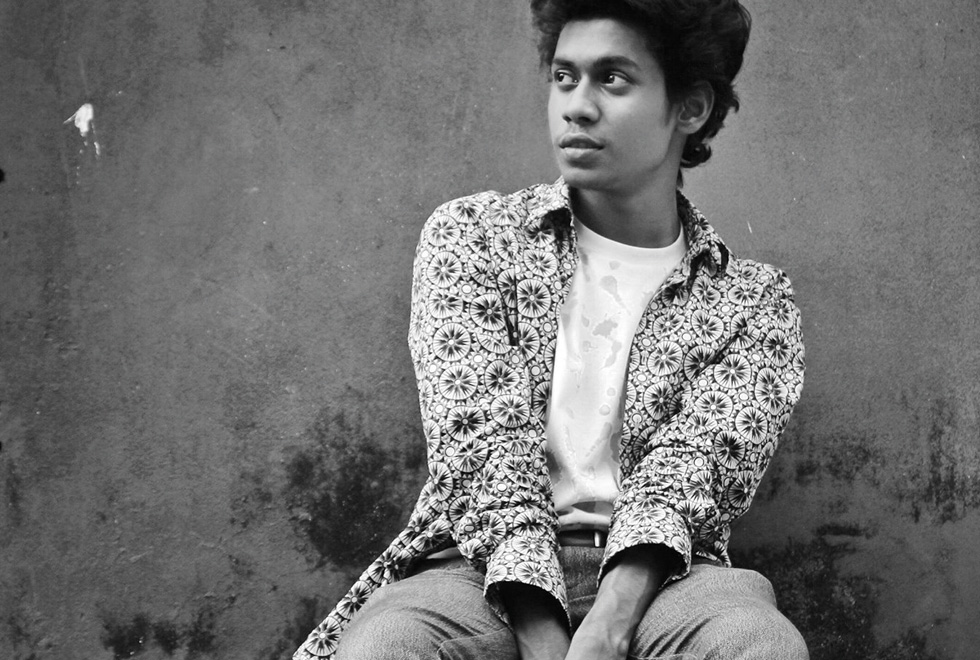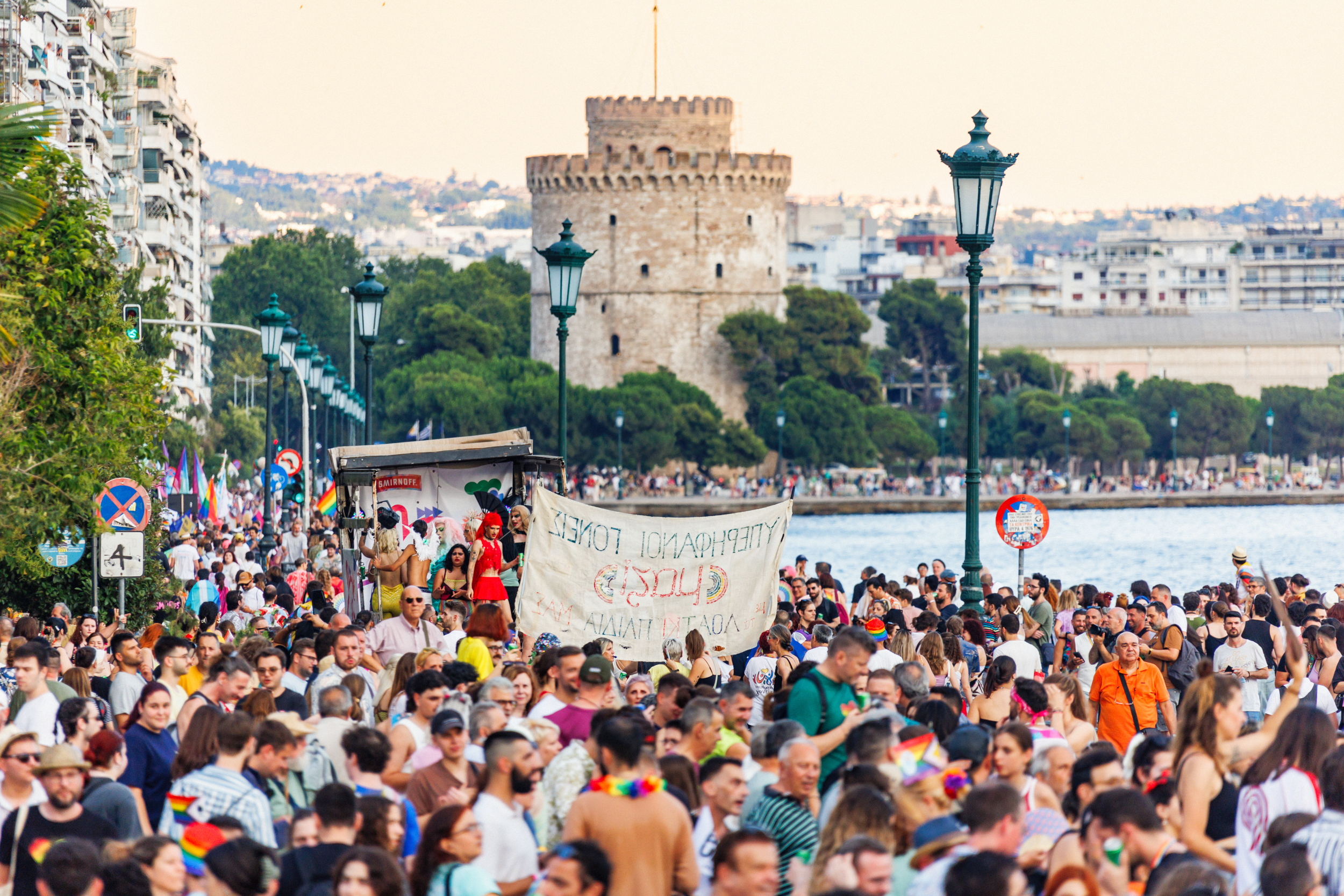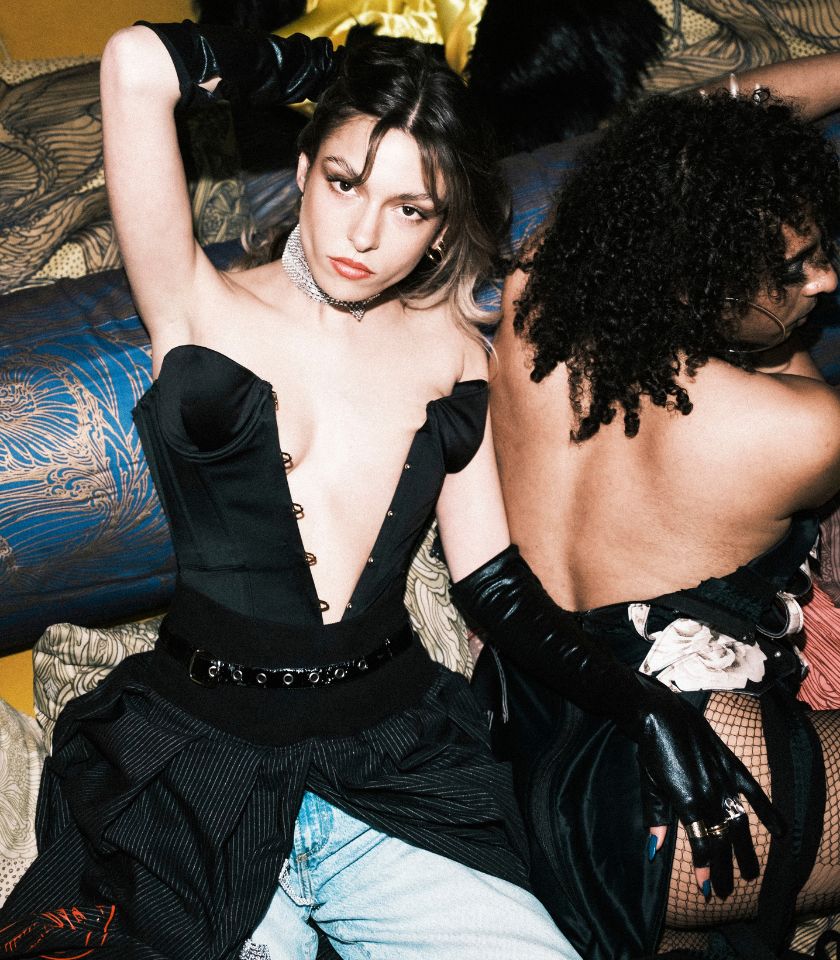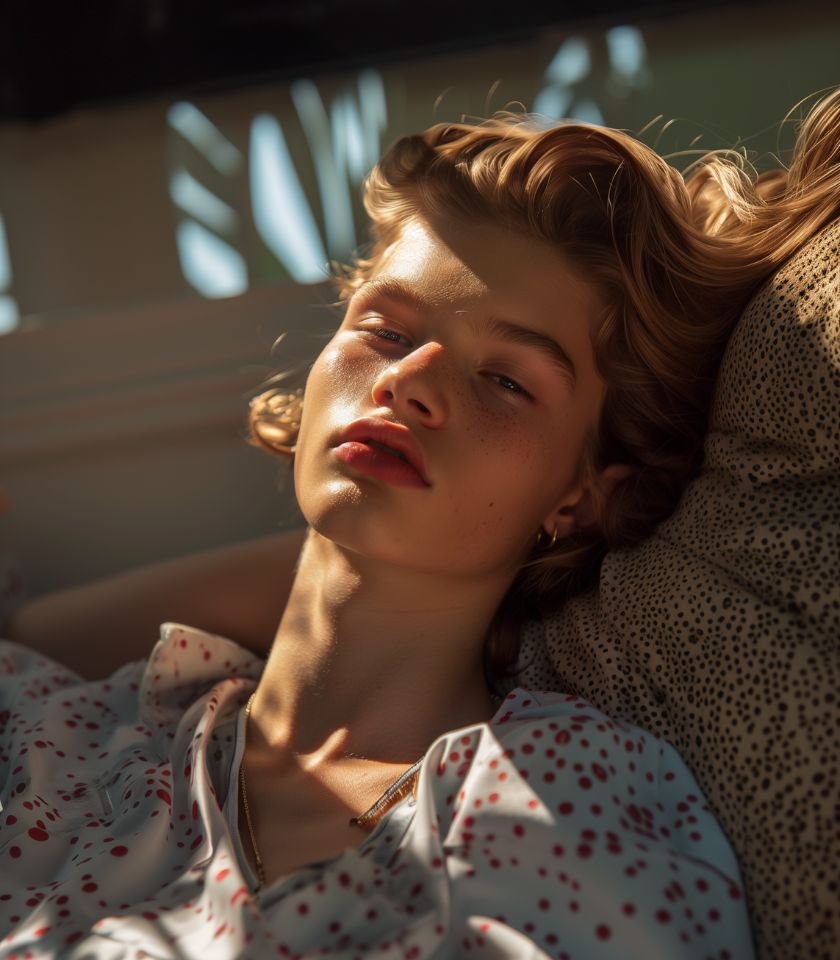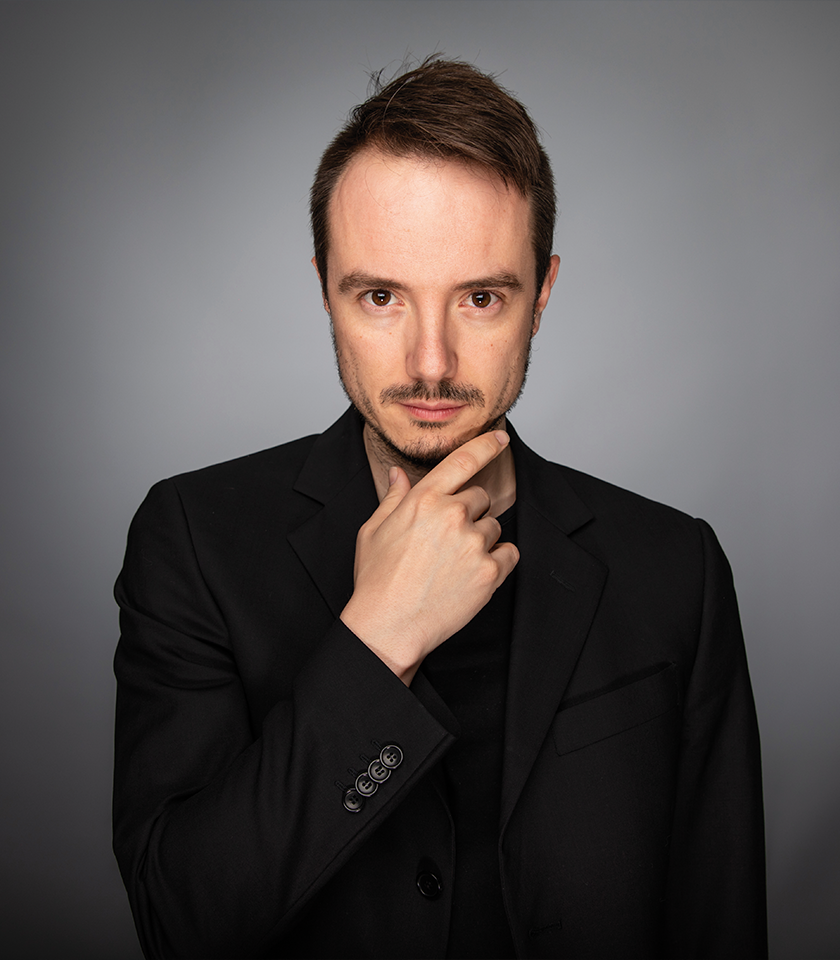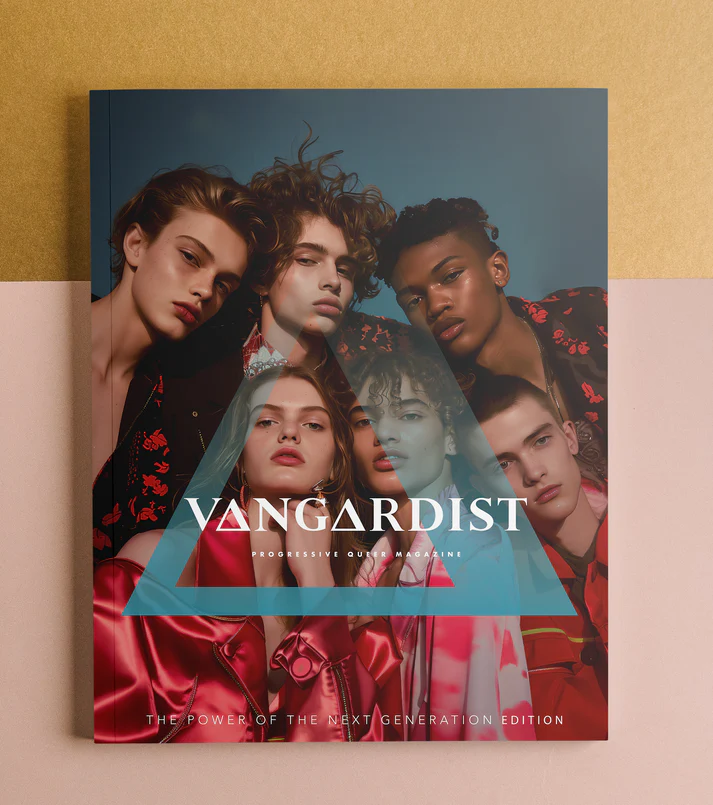Anbid Zaman is a twenty-two-year-old LGBTIQ activist currently living in Cologne. He grew up in Dhaka, Bangladesh, where he lived until 2016, when he had to leave the country to save his life after two of his fellow activists were killed in a homophobic attack. Supported by a network of international human rights and LGBTIQ rights organizations and the city of Cologne, he has managed to get out and come to Germany, where he tirelessly keeps on fighting for his cause.
Anbid started his journey as an LGBTIQ activist at the young age of sixteen, keen on understanding and learning about how society and culture work. Growing up in a highly conservative and thoroughly heteronormative environment, he is familiar with violence towards people who are different, having faced discrimination himself, being bullied about the way he behaves, moves and talks.
Anbid tells us how working for LGBTIQ issues has changed his life by getting in touch with other activists and starting brave and ambitious projects and initiatives. The organization he was first involved with is called Roopbaan, and amongst many other actions it issued the first LGBTIQ magazine in Bangladesh, a big step that received national as well as international media coverage. Roopbaan also organized the country’s first “Rainbow Rallies”, events similar to Pride, displaying diversity and colourfulness on the streets. One key concern in the organization’s work is to advocate for queer issues through Bengali arts and culture: to suspend the widespread ideas that queer realities don’t exist in traditional Bengali culture and that the promotion of LGBTIQ rights is no more than Western propaganda.
“It’s really a pity that there is not enough research from Bengali literature about stories of same-sex relationships. There is also no visibility of positive queer narratives in the media.”
Well thought through and smart, Roopbaan has launched diverse projects to create visibility and knowledge, but it also faces severe backlashes over and over again. The magazine, even though being more of a lifestyle magazine trying to make queer realities in Bangladesh visible and relatable, has been condemned as pornographic by government officials and the media, and its Rainbow Rally got bad media coverage, with journalists talking about being gay or queer as unnatural and perverted. The organization and its activists have often been under threat, not only from authorities and secret police, but also from ultraconservative, religious and militant groups. Shortly before the third Rainbow Rally is supposed to take place, it is called off due to security concerns. However, the activist group still decides to march along with the regular New Year’s parade with their colourful paper birds, flowers and balloons, and police managed to identify some of the Roopbaan volunteers, leading to six of Anbid’s fellow activists being arrested.
Soon after, something terrible happens, Anbids friends, Xulhaz Mannan, the founder and president of Roopbaan, and K. Mahbub Rabbi Tonoy, the general secretary of the organization, are brutally murdered in a machete attack that a group affiliated with al-Qaeda claims responsibility for. They are murdered on a day when there was a meeting planned – a meeting that Anbid was supposed to attend. Being a little late was the only reason he was not there when the bloodshed happened. About to make his way to the meeting from the university, he got a call informing him about the attack. In shock and panic, he makes his way home instead.
“I was shocked – my favourite person I have ever known was just not there anymore, someone whom I learned so much from. I was really in trauma and when I think back, it was a life no one would like to live, a life in fear of death.”
After the murders, the Bangladeshi government does little to solve the case of the killings and never clearly condemns them; rather, it justifies what happened by blaming Xulhaz Mannan and K. Mahbub Rabbi Tonoy for “promoting homosexuality”. In order to stay safe, Anbid changes his appearance and goes into hiding. He sleeps during daytime and is awake at night, full of fear.
During that dark time, Anbid receives a lot of support from his parents and soon a network of international organizations gets in touch to offer help. An activist from the International Secretariat of Amnesty International gives him moral support by talking to him on the phone, and Sören Landmann, chairman of Aktionsbündnis gegen Homophobie, becomes an important friend to Anbid, calling him every day to encourage him not to give up and to let him know that there are people concerned about his safety standing behind him. They are looking into options and ways to get him out of the country.
“I was not even sure if I wanted to get out of the country because I loved my country so much and there was so much work to do, even if I died – that was the spirit we had. It was very difficult to choose to leave my family, my friends, my life that I’ve had for 20 years behind. I told my mom that I was going to leave and she said – if it’s something that saves your life, I am happy to not see you anymore, but to know that you are alive.”
It takes almost another month to get a passport and organize Anbid’s journey. His entire family then brings him to the airport and he boards of a plane to Germany, spending hours of the flight in tears, realizing that he had taken a step that he had never wanted to take.
Arriving in Germany, Anbid encounters a lot of support and finds a caring community. He is picked up and taken care of by activists from the organization Rainbow Refugees Cologne. With the immense support of the city of Cologne welcoming Anbid as a resident, the German foreign ministry finally grants him a visa to stay in Germany.
“When I first arrived, everything felt different. I felt like Alice in Wonderland, wondering am I really safe, do I have to worry while walking on the streets, do I have to look behind and see if someone is looking at me? Do I have to cover my face? No – I felt so safe and so liberated.”
Anbid has fallen in love with Cologne and has embraced the local culture and language; he recently took his B2 exam in German. He tells us how he feels very well integrated and how he learned about the traditions, characteristics and peculiarities of Cologne. He has made a lot of new friends and has a partner. Determined and courageous, he keeps on fighting for his cause and is active in different LGBTIQ rights organizations. For instance, he is a board member at Aktionsbündnis gegen Homophobie, where is he responsible for international affairs.
Resilient and strong, Anbid has recently started to share his story, preparing a presentation called “Ich mache trotzdem weiter…” (nevertheless, I will continue…). He has given his talk in several German cities to raise awareness of the situation in Bangladesh and to inform people on how supporting local organizations can help human rights defenders and activists all around the world. It is important to him to share his story, to encourage people to become active and to be proud of activists all over the world, rather than just feel sad and paralyzed. He gets encouraging feedback and has had inspiring encounters. His activism makes up an important part of his life, though it hasn’t always been easy to just keep going with his work after what he has been through.
The situation in Bangladesh has worsened since Anbid and his fellow activists started their work in 2013: people are being threatened, they go missing, or they even die. There are mysterious deaths and disappearances of social and political activists, and the government’s behaviour of not condemning crimes and not actively protecting freedom of speech and expression strengthens radical militant groups. Anbid still has friends and fellow activists who keep up the work in Bangladesh, but they have to be much more careful and secretive to stay under the radar and protect themselves.
Besides his work as an activist, Anbid is currently moving on with his German course and preparing a portfolio to apply to universities. Back in Bangladesh, he was studying marketing and now he would like to look into the relationship between fashion design and politics. Ambitious and brave as he is, he is also working on founding a nationwide network for LGBTIQ migrants and refugees in Germany.
“I am so happy and glad that things are going well for me and I really want it to get easier for all the people who are exiled or refugees. Because living in a foreign state is something else than being in your home country, I hope that it gets easier and that European governments support and protect foreigners who had to leave their countries. It’s not a decision: people have to leave because of circumstances of living, personal persecution for their identities, political reasons, war, and many other reasons. I hope that people and governments will consider that and accept all those people, integrate them and help them – like the support that have I received. I want everyone to come forward and support people who are fleeing and who are moving away from their families. They didn’t choose to do so, they have to do so.”
Anbid Zaman is an inspiring and brave human rights defender making his way.
www.pinktriangleissue.com
Text: Djamila Grandits

